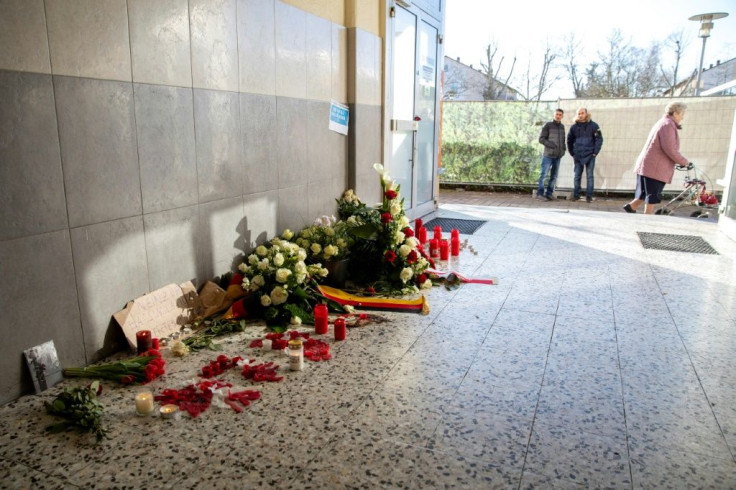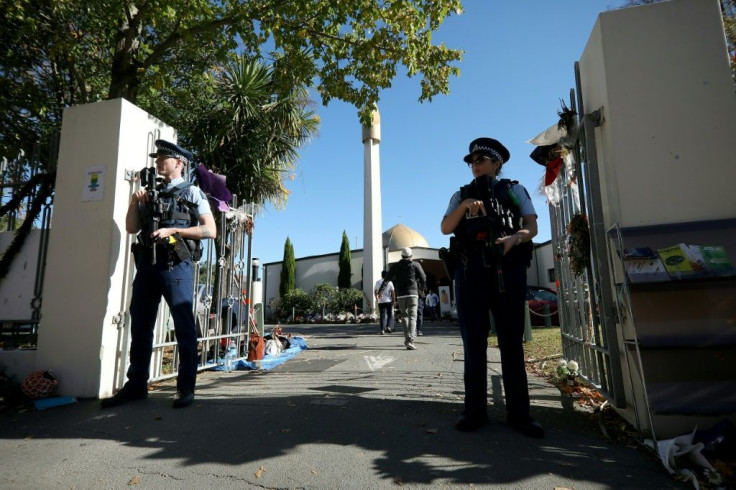Emboldened By 'Heroes' And Hate Music, White Extremists On The Rise

They may lack centralised organisation or even a common goal, but white supremacists encouraged by the exploits of extremist "heroes" canonised on social media pose an ever-growing security threat, analysts say.
After nine people in Germany were killed by a gunman with "a very deeply racist attitude," the country's interior minister on Friday warned that the far right still posed a "very high" security threat.
The shootings on Wednesday at a shisha bar and a cafe in the city of Hanau were the latest in a growing list of attacks in the West attributed to self-appointed defenders of a "white race" perceived to be under threat from migration, globalisation and Islam.
From Christchurch to Pittsburg, Halle to El Paso, militants have been emboldened by a narrative of hatred spread on the internet with an ease that observers find worrying.
"This digital ecosystem is fuelling a cumulative momentum, which serves to lower 'thresholds' to violence for those engaged in this space, both in the United States and elsewhere," Graham Macklin, assistant professor at the Center for Research on Extremism at the University of Oslo, said in a recent article.
One attack "encourages and inspires another, creating a growing 'canon' of 'saints' and 'martyrs' for others to emulate," he wrote -- noting that Norwegian neo-Nazi Anders Behring Breivik, who massacred 77 people in 2011, had become "an aspirational figure" for many.
According to the Soufan Center, a global security think-tank, white supremacism has entered a phase of globalisation driven by niche websites popular among neo-Nazis, such as Gab and 8chan, and even the so-called "white power" music scene.
"White supremacy extremists rely on a diverse set of techniques to radicalise potential recruits," it said in a recent report, with attackers "lionised" on such platforms "as heroes, martyrs, 'saints,' 'commanders' and other honorifics."
White extremists do not share a single, common goal -- some seek self rule, others the expulsion of minorities -- but all believe their "race" to be under threat.
"Many adherents to transnational white supremacy extremism hold millenarian and apocalyptic beliefs about an imminent race war, with some ardent believers in the end of time and influenced by elements of Christian identity," Soufan said.
Some believe their governments are conspiring with minority populations to bring about their demise -- the so-called Great Replacement theory, based on the title of a 2011 book by French writer Renaud Camus.
Anais Voy-Gillis, an extreme right specialist at the French Institute of Geopolitics, said: "The current context, with notably the migrant crisis of 2015, has surely contributed to the radicalisation of many people who are now ready to cross over to action."
Not only fringe sites are used to spread messages of fear, hate, and racial superiority.
The gunman who attacked two mosques in Christchurch, New Zealand, last March, killing 51 Muslim worshippers, live-streamed his attack live on Facebook.

A few months later, an anti-Semitic attack in the east German city of Halle, which claimed two lives, was posted on the streaming platform Twitch.
"There are many radical groups in the world and the internet is a facilitator for them to get together nationally and even internationally," Voy-Gillis told AFP.
In Europe, a well-organised coordination of far-right efforts seems unlikely, for now.
Last June, a French parliamentary committee conducted an analysis of far-right groups in the country, including attempts to make contact with like-minded organisations elsewhere in Europe, notably in Germany, Greece, Belgium, Italy, Britain, Spain and Austria.
At the time, the boss of France's DGSI domestic intelligence service Nicolas Lerner told investigators the chances were "extremely limited" that these movements would have the ability to work together at a European level.
But within a country's borders, the threat is real.
German Interior Minister Horst Seehofer said Friday that right-wing extremism was the "biggest security threat" facing his country, as he announced a more visible police presence and bolstered surveillance at mosques, train stations, airports and borders.
In the United States, an FBI report last November showed that 65 percent of "lone wolf" perpetrators of terror attacks where white.
Nearly a fifth (19 percent) of 52 such attacks committed in the United States between 1972 and 2015 were motivated by ideologies "advocating for the superiority of the white race," it found.
It was the same percentage as attackers motivated by radical Islamist doctrine.
"For almost two decades, the United States has pointed abroad at countries who are exporters of extreme Islamist ideology," Russell Travers, acting director of the National Counterterrorism Center, said in November.
"We are now being seen as the exporters of white supremacist ideology; that's a reality with which we are going to have to deal," he said.
dla/mlr/js/txw
© Copyright AFP {{Year}}. All rights reserved.




















